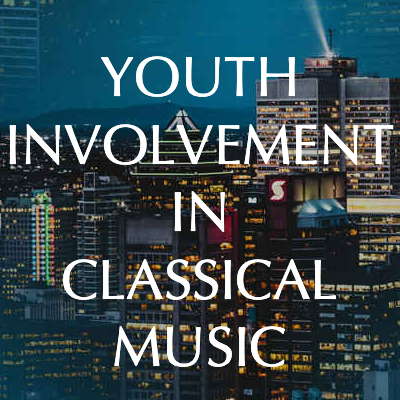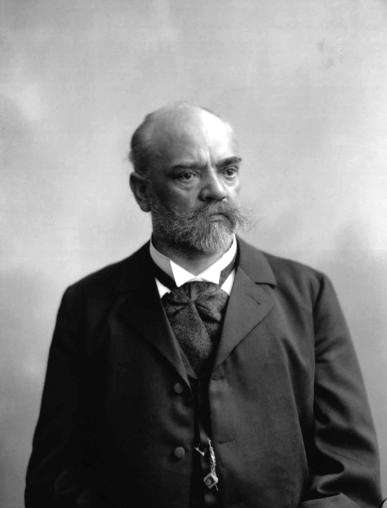- Salomon
- Moses Hogan
- Cláudio Franco de Sá Santoro
- Nektarios Chargeishvili
- Ivor Gurney
- Raphael Wallfisch
- Vox Brasiliensis
- Recife
 DISCUSSION: What is a work? John Dante Prevedini leads a discussion about The performing artist as co-creator, including contributions from Halida Dinova, Yekaterina Lebedeva, Béla Hartmann, David Arditti and Stephen Francis Vasta.
DISCUSSION: What is a work? John Dante Prevedini leads a discussion about The performing artist as co-creator, including contributions from Halida Dinova, Yekaterina Lebedeva, Béla Hartmann, David Arditti and Stephen Francis Vasta.
 VIDEO PODCAST: John Dante Prevedini leads a discussion about Youth Involvement in Classical Music - this specially extended illustrated feature includes contributions from Christopher Morley, Gerald Fenech, Halida Dinova, Patricia Spencer and Roderic Dunnett.
VIDEO PODCAST: John Dante Prevedini leads a discussion about Youth Involvement in Classical Music - this specially extended illustrated feature includes contributions from Christopher Morley, Gerald Fenech, Halida Dinova, Patricia Spencer and Roderic Dunnett.
A Massive and Moving Sound
KEITH BRAMICH listens to Dvořák's Requiem at the first evening concert of the 2022 Three Choirs Festival in Hereford Cathedral
The rarely performed Requiem in B flat minor by Antonín Dvořák is a large, multi-section, fascinatingly different and serious work. Commissioned by and for an October 1891 music festival in Birmingham UK, Dvořák decided to use the opportunity to try to improve on some of his previous choral works, such as the Stabat Mater. Performance times well in excess of ninety-five minutes, plus requirements for four soloists and large orchestra (including tam-tam) are possibly all reasons for the work's unpopularity with performance planners.

Antonín Dvořák in 1904
Many of the Requiem's sections are substantial works in themselves, although they're held together by the latin text of the Requiem mass and by the four-note motif formed from adjacent notes: F, G-flat, E and F, which is stated very plainly in the violins at the opening, and which permeates the whole work. Gwilym Bowen's programme notes for last night's opening concert of the Three Choirs Festival in Hereford Cathedral mention that this motif forms the shape of the cross. As significant as this is, my ear seemed to prefer to pick up rather on the almost Janáček-like ostinato effects that Dvořák creates from this pattern in, for example, the shimmering repetitions in both the choral writing ('quia pius es') and in the cellos near the end of the final Agnus Dei.
This was a great performance - particularly by the Philharmonia Orchestra, which I could hear with great clarity from my seat far away from the performers, under Simon Beer's huge decorative Corona (crown of thorns) in Hereford Cathedral. Particularly notable were the occasional shafts of light from Dvořák's string writing, his use of solo horn and brass, and unusual compositional choices - male voices for the Pie Jesu, for example.
The soloists were really excellent, too - Australian soprano and mezzo Anita Watson and Catherine Carby, respectively, British tenor Ruairi Bowen and German bass-baritone Stephan Loges (born in Dresden in 1972), replacing an indisposed Matthew Brook.
Sometimes I had difficulty hearing the choral diction - a problem that it's easy to blame on cathedral acoustics and my distance from them - but this 120-strong chorus, drawn from all three cathedral cities - Hereford, Gloucester and Worcester - made a massive and moving sound.
The Three Choirs Festival continues until 30 July 2022, with the Philharmonia Orchestra in residence. This evening (24 July 2022, 7.30pm) in Hereford Cathedral, with soprano Elizabeth Llewellyn, Emilia Hoving conducts the first UK performance of Rolf Martinsson's Ich denke Dein ... and Gustav Mahler's Symphony No 4.
On the evening of Monday 25 July, there's another huge, rare and unusual choral masterpiece - Quo Vadis by George Dyson (1883-1964). The Festival Chorus is back with four different soloists - Rebecca Hardwick, Jess Dandy, James Oxley and Alex Ashworth, and Gloucester Cathedral director of music Adrian Partington conducts.
The evening of Tuesday 26 July brings better-known fare: Franz Joseph Haydn's The Creation. The festival's artistic director Geraint Bowen (who also led yesterday's performance of Dvořák's Requiem) conducts, but the Philharmonia Orchestra has the evening off, courtesy of the Musical and Amicable Society. On-stage with Three Cathedral Choirs are soloists Joanne Lunn, Gwilym Bowen and David Stout.
Worcester Cathedral director of music Samuel Hudson takes the stage on Wednesday evening for the Stabat Mater by English composer Richard Blackford (born 1954), to which the composer gave the name Pietà. Also on the programme are Webern's arrangement of J S Bach's Ricecare à 6 and Metamorphosen by Richard Strauss. The Philharmonia Orchestra is back, and soloists Jess Dandy, Roderick Williams and saxophonist Amy Dickson join the Worcester Cathedral Choristers and the Three Choirs Festival Chorus.
Thursday (at the slightly later time of 7.45pm) brings more contemporary music - the first performance of a new Three Choirs Festival commission - Voices of Power by British/Australian composer Luke Styles and singer/writer Jessica Walker. Also on this fascinating programme, All the ends of the earth by Judith Weir and the first UK performance of If you bring forth what is within by Sarah Kirkland Snider. There's also one piece of early music - Cessate tympana, cessate praelia by Italian composer Maria Xaveria Peruchona (1652-1709). Samuel Hudson conducts again, and contralto Hilary Summers joins the Three Choirs Festival Youth Choir and the Philharmonia Orchestra.
Transformations on Friday evening (29 July), conducted by Adrian Partington, features Francis Poulenc's Stabat Mater, along with Igor Stravinsky's arrangement of J S Bach's Canonic Variations on 'Von Himmel hoch', Gerald Finzi's Dies natalis (transforming words by the Herefordshire poet and priest Thomas Traherne, c1637-74, whose local connection is celebrated by Thomas Denny's beautiful window in Hereford Cathedral) and Benjamin Britten's The Young Person's Guide to the Orchestra (transforming Purcell). Soprano Elizabeth Watts is the soloist, with the Three Choirs Festival Chorus and the Philharmonia Orchestra.
The festival's grand finale features Elgar's The Dream of Gerontius (Saturday 30 July 2022, 7.30pm), with Elgar's arrangement of J S Bach's Fantasia and Fugue in C minor as a starter. Geraint Bowen conducts the Festival Chorus and Philharmonia Orchestra, and the soloists are Sarah Connolly, Nicky Spence and Neal Davies.
There is, of course, much more to the 2022 Three Choirs Festival than these flagship evening cathedral concerts, including a series of late-night concerts in Hereford's All Saints Church, plus walks, talks, organ recitals and chamber music. Find out more at 3choirs.org
Copyright © 24 July 2022
Keith Bramich,
Herefordshire UK

ARTICLES ABOUT THE THREE CHOIRS FESTIVAL


